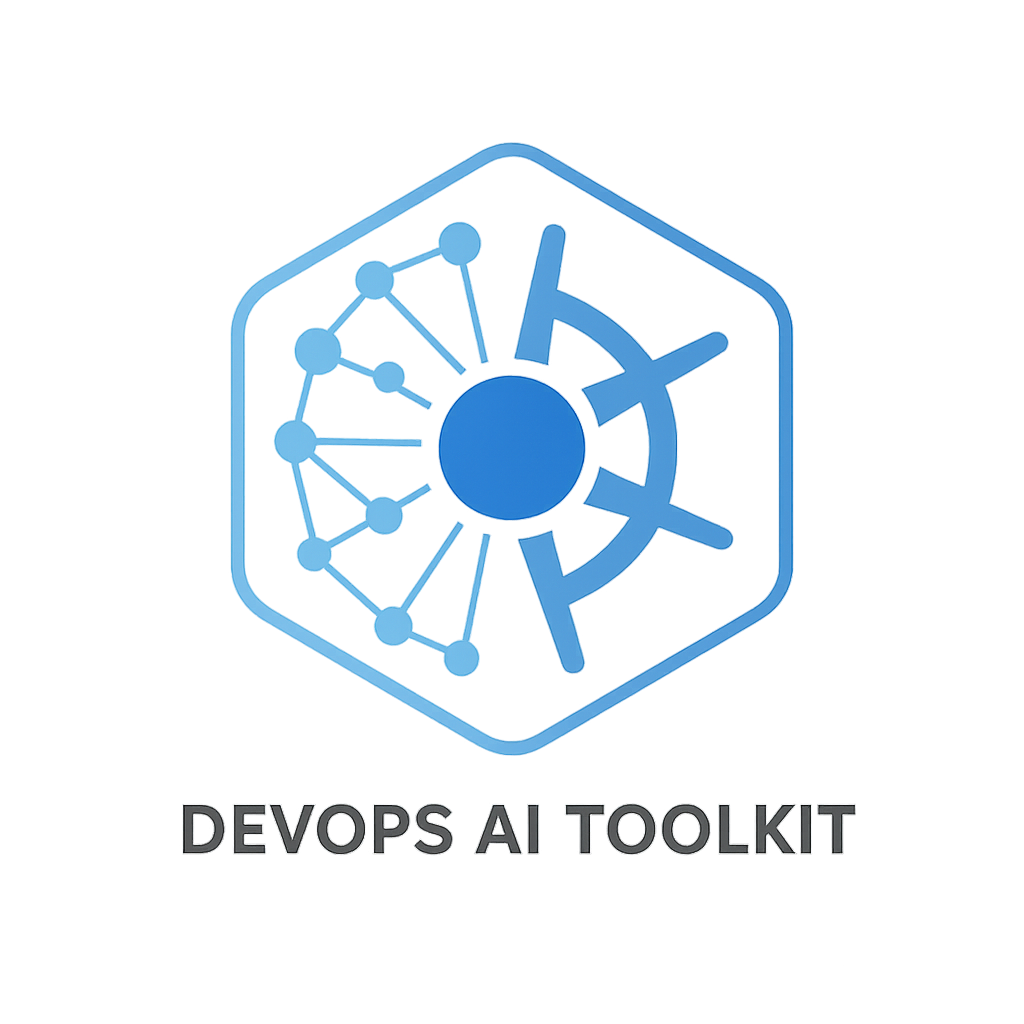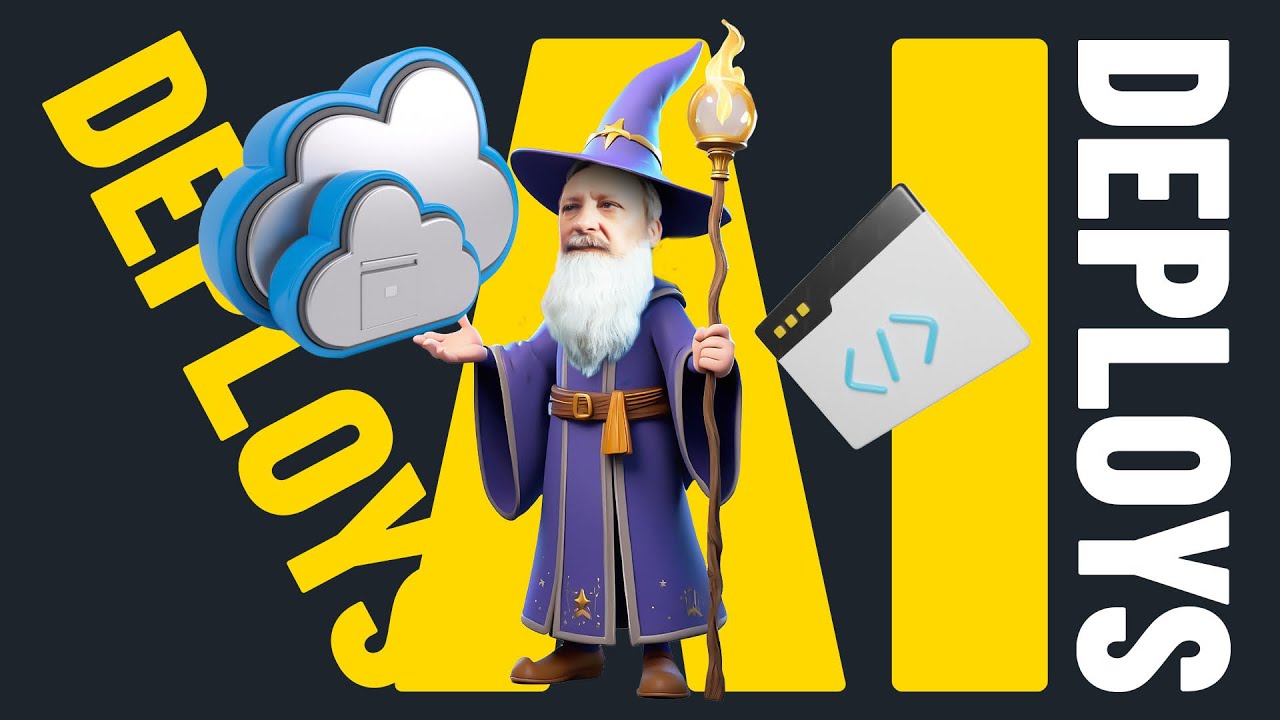Integrates with Docker for containerized deployment of the MCP server and associated services like vector databases
Creates GitHub issues as part of documentation testing workflows and PRD creation processes
Provides intelligent Kubernetes deployment capabilities including cluster resource discovery, semantic capability management, AI-powered deployment recommendations, and automated manifest generation and deployment
Tests and validates Markdown documentation files for accuracy, executing commands and testing examples to ensure documentation correctness
Uses OpenAI's API for semantic pattern matching and vector operations in organizational pattern management
Click on "Install Server".
Wait a few minutes for the server to deploy. Once ready, it will show a "Started" state.
In the chat, type
@followed by the MCP server name and your instructions, e.g., "@DevOps AI Toolkitdeploy a PostgreSQL database with high availability"
That's it! The server will respond to your query, and you can continue using it as needed.
Here is a step-by-step guide with screenshots.
DevOps AI Toolkit

DevOps AI Toolkit is an AI-powered development productivity platform that enhances software development workflows through intelligent automation and AI-driven assistance.
📚 Quick Start | 🔧 MCP Setup | 🛠️ Features & Tools
Who is this for?
Kubernetes Deployment
Developers: Deploy applications without needing deep Kubernetes expertise
Platform Engineers: Create organizational deployment patterns that enhance AI recommendations with institutional knowledge and best practices, and scan cluster resources to enable semantic matching for dramatically improved recommendation accuracy
Security Engineers: Define governance policies that integrate into deployment workflows with optional Kyverno enforcement
Kubernetes Issue Remediation
DevOps Engineers: Quickly diagnose and fix Kubernetes issues without deep troubleshooting expertise
SRE Teams: Automate root cause analysis and generate executable remediation commands
Support Teams: Handle incident response with AI-guided investigation and repair workflows
Documentation Testing
Documentation Maintainers: Automatically validate documentation accuracy and catch outdated content
Technical Writers: Identify which sections need updates and prioritize work effectively
Open Source Maintainers: Ensure documentation works correctly for new contributors
Shared Prompts Library
Development Teams: Share proven prompts across projects without file management
Project Managers: Standardize workflows with consistent prompt usage across teams
Individual Developers: Access curated prompt library via native slash commands
AI Integration
AI Agents: Integrate all capabilities with Claude Code, Cursor, or VS Code for conversational workflows
REST API: Access all tools via standard HTTP endpoints for CI/CD pipelines, automation scripts, and traditional applications
Related MCP server: mcp-kubernetes-ro
Key Features
Kubernetes Deployment Intelligence
🔍 Smart Discovery: Automatically finds all available resources and operators in your cluster
🧠 Semantic Capability Management: Discovers what each resource actually does for intelligent matching
🤖 AI Recommendations: Smart intent clarification gathers missing context, then provides deployment suggestions tailored to your specific cluster setup with enhanced semantic understanding
🔧 Operator-Aware: Leverages custom operators and CRDs when available
🚀 Complete Workflow: From discovery to deployment with automated Kubernetes integration
Capability-Enhanced Recommendations
Transform how AI understands your cluster by discovering semantic capabilities of each resource:
The Problem: Traditional discovery sees sqls.devopstoolkit.live as a meaningless name among hundreds of resources.
The Solution: Capability management teaches the system that sqls.devopstoolkit.live handles PostgreSQL databases with multi-cloud support.
Before Capability Management:
User: "I need a PostgreSQL database"
AI: Gets 400+ generic resource names → picks complex multi-resource solution
Result: Misses optimal single-resource solutionsAfter Capability Management:
User: "I need a PostgreSQL database"
AI: Gets pre-filtered relevant resources with rich context
Result: Finds sqls.devopstoolkit.live as perfect match ✨Kubernetes Issue Remediation
🔍 AI-Powered Root Cause Analysis: Multi-step investigation loop identifies the real cause behind Kubernetes failures
🛠️ Executable Remediation: Generates specific kubectl commands with risk assessment and validation
⚡ Dual Execution Modes: Manual approval workflow or automatic execution based on confidence thresholds
🔒 Safety Mechanisms: Automatic fallback to manual mode when validation discovers additional issues
🎯 Cross-Resource Intelligence: Understands how pod issues may require fixes in different resource types (storage, networking, etc.)
Documentation Testing & Validation
📖 Automated Testing: Validates documentation by executing commands and testing examples
🔍 Two-Phase Validation: Tests both functionality (does it work?) and semantic accuracy (are descriptions truthful?)
🛠️ Fix Application: User-driven selection and application of recommended documentation improvements
💾 Session Management: Resumable testing workflows for large documentation sets
Organizational Pattern Management
🏛️ Pattern Creation: Define organizational deployment patterns that capture institutional knowledge
🧠 AI Enhancement: Patterns automatically enhance deployment recommendations with organizational context
🔍 Semantic Search: Uses Vector DB (Qdrant) for intelligent pattern matching based on user intent
📋 Best Practices: Share deployment standards across teams through reusable patterns
Policy Management & Governance
🛡️ Policy Creation: Define governance policies that guide users toward compliant configurations
⚠️ Compliance Integration: Policies create required questions with compliance indicators during deployment
🤖 Kyverno Generation: Automatically generates Kyverno ClusterPolicies for active enforcement
🎯 Proactive Governance: Prevents configuration drift by embedding compliance into the recommendation workflow
🔍 Vector Storage: Uses Qdrant Vector DB for semantic policy matching and retrieval
Shared Prompts Library
🎯 Native Slash Commands: Prompts appear as /dot-ai:prompt-name in your coding agent
📚 Curated Library: Access proven prompts for code review, documentation, architecture, and project management
🔄 Zero Setup: Connect to MCP server and prompts are immediately available across all projects
🤝 Team Consistency: Standardized prompt usage with centralized management
AI Integration
⚡ MCP Integration: Works seamlessly with Claude Code, Cursor, or VS Code through Model Context Protocol
🤖 Conversational Interface: Natural language interaction for deployment, documentation testing, pattern management, and shared prompt workflows
Setup Required: See the MCP Setup Guide for complete configuration instructions.
🚀 Ready to deploy? Jump to the Quick Start guide to begin using DevOps AI Toolkit.
See It In Action

This video explains the platform engineering problem and demonstrates the Kubernetes deployment recommendation workflow from intent to running applications.
Documentation
🚀 Getting Started
MCP Setup Guide - Complete configuration instructions for AI tools integration
Tools and Features Overview - Comprehensive guide to all available tools and features
Troubleshooting
MCP Issues
MCP server won't start:
Verify environment variables are correctly configured in
.mcp.jsonenv sectionCheck session directory exists and is writable
Ensure
ANTHROPIC_API_KEYis valid
"No active cluster" errors:
Verify kubectl connectivity:
kubectl cluster-infoCheck KUBECONFIG path in environment variables
Test cluster access:
kubectl get nodes
Support
Issues: GitHub Issues
Contributing
We welcome contributions! Please:
Fork the repository and create a feature branch
Run integration tests to ensure changes work correctly (see Integration Testing Guide)
Follow existing code style and conventions
Submit a pull request with a clear description of changes
License
MIT License - see LICENSE file for details.
DevOps AI Toolkit - AI-powered development productivity platform for enhanced software development workflows.